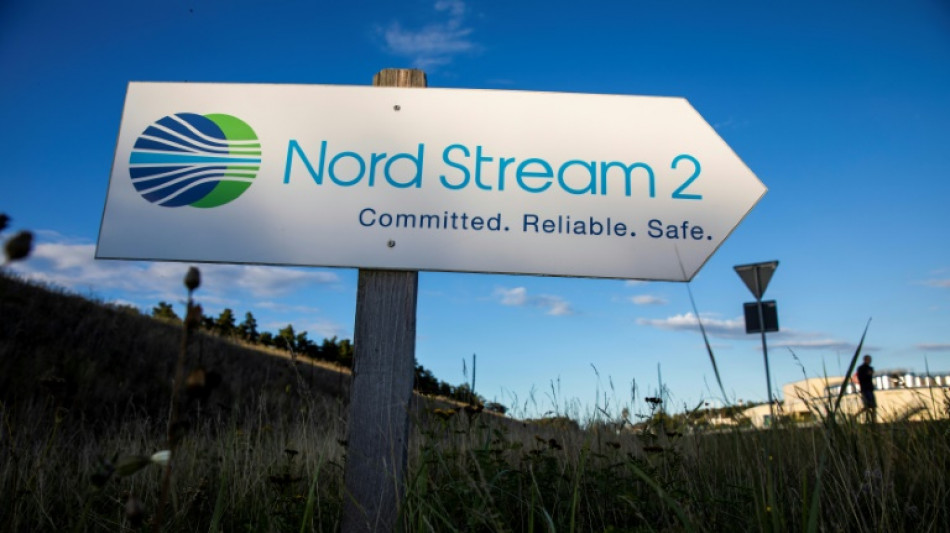
-
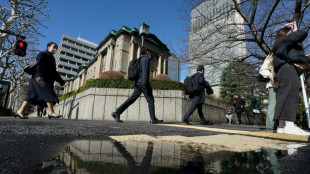 Oil prices drop, stocks diverge amid economic growth fears
Oil prices drop, stocks diverge amid economic growth fears
-
Israel brings fire near Jerusalem 'under control', reopens roads
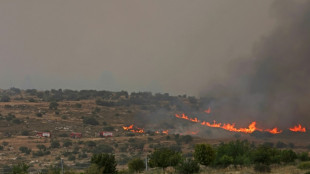
-
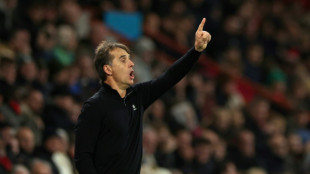 Lopetegui appointed coach of Qatar
Lopetegui appointed coach of Qatar
-
UK counter-terrorism unit probes rappers Kneecap but music stars back band

-
 Yamal heroics preserve Barca Champions League final dream
Yamal heroics preserve Barca Champions League final dream
-
2026 T20 World Cup 'biggest women's cricket event in England' - ECB
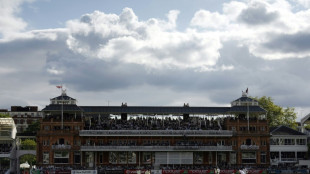
-
 Bangladesh begins three days of mass political rallies
Bangladesh begins three days of mass political rallies
-
Children learn emergency drills as Kashmir tensions rise

-
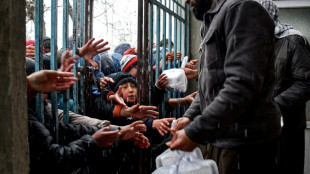 Millions of children to suffer from Trump aid cuts
Millions of children to suffer from Trump aid cuts
-
Veteran Wallaby Beale set for long-awaited injury return
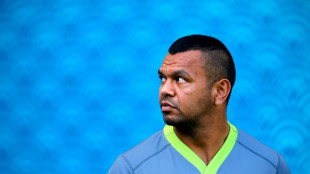
-
 Syria's Druze take up arms to defend their town against Islamists
Syria's Druze take up arms to defend their town against Islamists
-
Tesla sales plunge further in France, down 59% in April

-
 US calls on India and Pakistan to 'de-escalate'
US calls on India and Pakistan to 'de-escalate'
-
Israel reopens key roads as firefighters battle blaze

-
 Europe far-right surge masks divisions
Europe far-right surge masks divisions
-
James will mull NBA future after Lakers playoff exit

-
 Ukraine's chief rabbi sings plea to Trump to side with Kyiv
Ukraine's chief rabbi sings plea to Trump to side with Kyiv
-
Australian mushroom meal victim 'hunched' in pain, court hears

-
 Lakers dumped out of playoffs by Wolves, Rockets rout Warriors
Lakers dumped out of playoffs by Wolves, Rockets rout Warriors
-
Booming tourism and climate change threaten Albania's coast

-
 US reaching out to China for tariff talks: Beijing state media
US reaching out to China for tariff talks: Beijing state media
-
Tariffs prompt Bank of Japan to lower growth forecasts

-
 Kiss faces little time to set Wallabies on path to home World Cup glory
Kiss faces little time to set Wallabies on path to home World Cup glory
-
Serbian students, unions join forces for anti-corruption protest

-
 Slow and easily beaten -- Messi's Miami project risks global embarrassment
Slow and easily beaten -- Messi's Miami project risks global embarrassment
-
Fan in hospital after falling to field at Pirates game

-
 Nuclear power sparks Australian election battle
Nuclear power sparks Australian election battle
-
Tokyo stocks rise as BoJ holds rates steady

-
 Bank of Japan holds rates, lowers growth forecasts
Bank of Japan holds rates, lowers growth forecasts
-
'Sleeping giants' Bordeaux-Begles awaken before Champions Cup semis

-
 Napoli eye Scudetto as Inter hope for post-Barca bounce-back
Napoli eye Scudetto as Inter hope for post-Barca bounce-back
-
Germany's 'absolutely insane' second tier rivalling Europe's best

-
 PSG minds on Arsenal return as French clubs scrap for Champions League places
PSG minds on Arsenal return as French clubs scrap for Champions League places
-
UK WWII veteran remembers joy of war's end, 80 years on

-
 Myanmar junta lets post-quake truce expire
Myanmar junta lets post-quake truce expire
-
Rockets romp past Warriors to extend NBA playoff series

-
 Messi, Inter Miami CONCACAF Cup dream over as Vancouver advance
Messi, Inter Miami CONCACAF Cup dream over as Vancouver advance
-
UN body warns over Trump's deep-sea mining order

-
 UK local elections test big two parties
UK local elections test big two parties
-
US judge says Apple defied order in App Store case

-
 Seventeen years later, Brood XIV cicadas emerge in US
Seventeen years later, Brood XIV cicadas emerge in US
-
Scorching 1,500m return for Olympic great Ledecky in Florida

-
 Israel's Netanyahu warns wildfires could reach Jerusalem
Israel's Netanyahu warns wildfires could reach Jerusalem
-
Istanbul lockdown aims to prevent May Day marches

-
 Mr. Stephen Shea, Former Managing Partner, Talent at Ernst & Young Joins Galloper Gold Board of Directors
Mr. Stephen Shea, Former Managing Partner, Talent at Ernst & Young Joins Galloper Gold Board of Directors
-
Alset Engages Silver Birch Growth to Accelerate Commercialization and Revenue Growth Across Portfolio Companies, With Immediate Focus on Cedarcross

-
 Budget Approval Expected Saturday for RONN Inc.-Saudi Arabia Hydrogen Joint Venture
Budget Approval Expected Saturday for RONN Inc.-Saudi Arabia Hydrogen Joint Venture
-
May is Teen Mental Health Awareness Month Avel eCare Provides Crucial Support for Teens in Crisis-At Home and In School

-
 Interactive Strength Inc. (Nasdaq:TRNR) Updates Shareholders on 2025 Progress To Date
Interactive Strength Inc. (Nasdaq:TRNR) Updates Shareholders on 2025 Progress To Date
-
NextSource Materials Announces Executive Transition to Drive Molo Mine Optimization and Prepare for Future Expansion


Ukraine tensions jumble up Germany's energy puzzle
Rising tensions with Moscow over Ukraine have exposed Germany's problematic dependence on Russian gas, inflaming an already heated debate over soaring energy prices.
As Germany pursues its target to transition to cleaner energy sources over the next decade, Europe's biggest economy has counted on gas temporarily filling the gap while it builds up its sun and wind energy capacity to replace nuclear and coal plants.
But with Russia now providing 55 percent of Germany's gas imports -- up from 40 percent in 2012 -- Berlin's best-laid plans may well go awry if Moscow were to march on Ukraine.
With gas making up 26.7 percent of Germany's total energy consumption and heating one in every two households, Chancellor Olaf Scholz's government has admitted that if sanctions had to be imposed on Russia, they will also hit the German economy.
More precisely, the controversial Nord Stream 2 pipeline, which was set to double supplies of cheap natural gas from Russia to Germany, now hangs in the balance.
In a warning hailed by the United States as "very, very strong", German Foreign Minister Annalena Baerbock has said the pipeline will be part of a sanctions package if Russia made a move on Ukraine.
- Energy security -
Long viewed as a problem by Western allies and Ukraine, the 10-billion-euro ($12 billion) pipeline had been seen by former chancellor Angela Merkel's government as a key stop-gap option while Germany shifts to renewables.
But critics have repeatedly warned that it would only serve to increase German dependence on Russian energy, and Ukraine President Volodymyr Zelensky has branded it a "dangerous geopolitical weapon of the Kremlin".
Yet weaning Germany off Russian energy will be painful.
"If we give up Russian gas and Nord Stream 2, it won't be lights out immediately, but it will be expensive, it will exacerbate unanswered gas supply questions for the future, and we'll have a problem," warned chairman of the mining, chemistry sector union IG BCE, Michael Vassiliadis.
With time pressing, the German government is launching a massive programme to build wind turbines covering two percent of the country's land surface, and require the installation of solar panels on roofs.
"Phasing out the burning of fossil fuels also strengthens Europe in geopolitical terms and protects the climate," Economy Minister Robert Habeck said earlier this month.
But with the nuclear energy phase-out due to be complete by year's end and coal power also to be halted by 2030, Germany will have to make up the difference by raising its gas capacity by a third over the next eight years, according to the Fraunhofer economic institute.
Already, Germany's gas consumption is on the rise. In 2021, it made use of 1.003 billion kWh, an increase of 3.9 percent on the previous year.
But the longer-term strategy does not solve the looming energy emergency at hand.
- 'Alternative' -
To reduce its dependency on Russia in the near future, the government is banking on diversifying its imports.
One "alternative" would be to exhaust the capacity of Europe's liquified natural gas terminals, a source in the economy ministry said.
This solution, in which fresh imports could be delivered from the United States, Australia or Qatar, would, however, come at a price, the source indicated.
Higher costs could give a fresh push to inflation, which has hit multi-year highs in Germany and the eurozone in recent months.
The situation is not made any easier by Germany's exceptionally low gas reserves, which currently sit below 42 percent of full capacity.
Nevertheless, the government sought to put a brave face on the issue.
Dismissing the risk of an acute shortage, Baerbock said on Friday that sufficient supply was "assured".
Th.Berger--AMWN